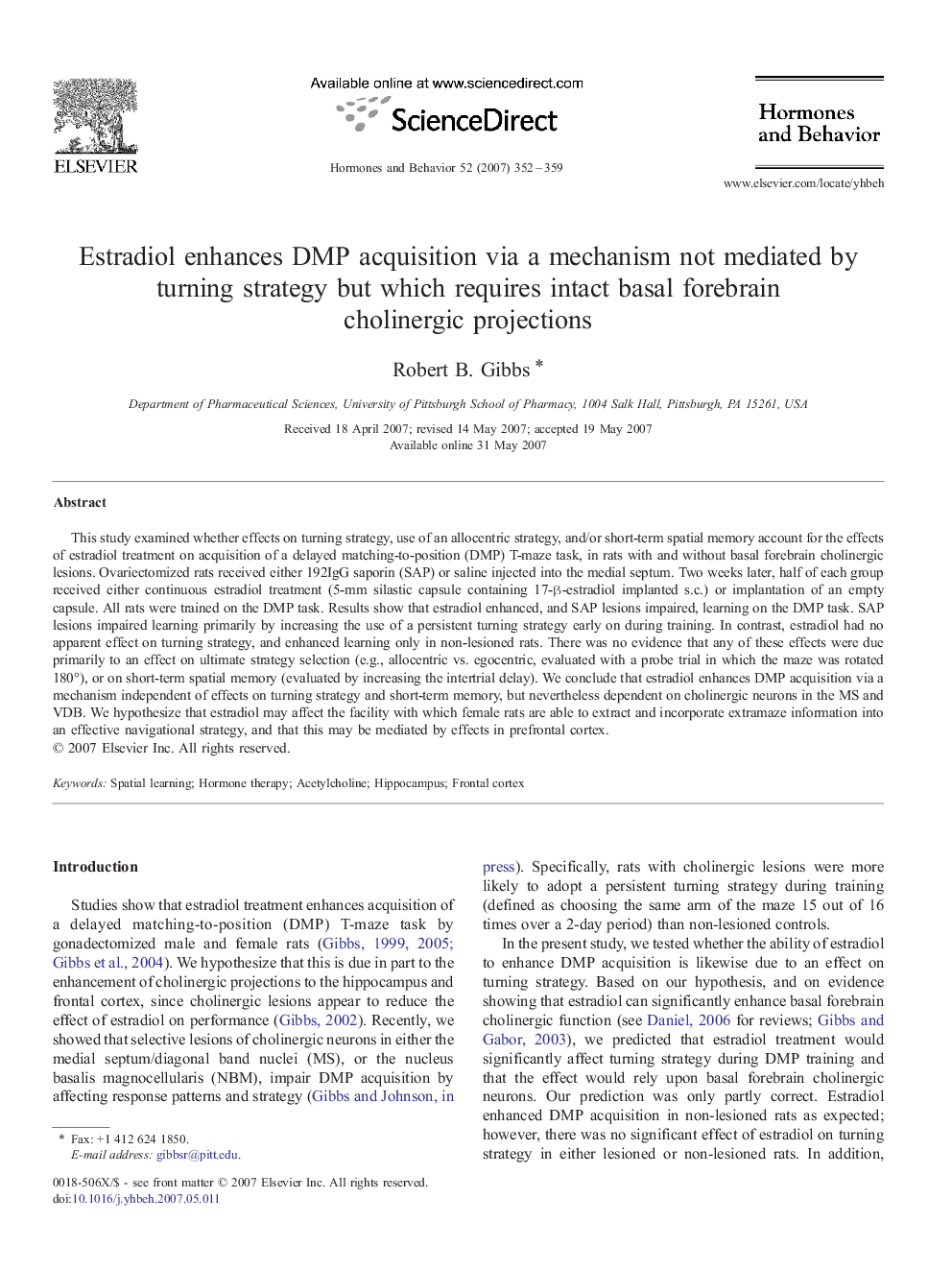| Article ID | Journal | Published Year | Pages | File Type |
|---|---|---|---|---|
| 323559 | Hormones and Behavior | 2007 | 8 Pages |
This study examined whether effects on turning strategy, use of an allocentric strategy, and/or short-term spatial memory account for the effects of estradiol treatment on acquisition of a delayed matching-to-position (DMP) T-maze task, in rats with and without basal forebrain cholinergic lesions. Ovariectomized rats received either 192IgG saporin (SAP) or saline injected into the medial septum. Two weeks later, half of each group received either continuous estradiol treatment (5-mm silastic capsule containing 17-β-estradiol implanted s.c.) or implantation of an empty capsule. All rats were trained on the DMP task. Results show that estradiol enhanced, and SAP lesions impaired, learning on the DMP task. SAP lesions impaired learning primarily by increasing the use of a persistent turning strategy early on during training. In contrast, estradiol had no apparent effect on turning strategy, and enhanced learning only in non-lesioned rats. There was no evidence that any of these effects were due primarily to an effect on ultimate strategy selection (e.g., allocentric vs. egocentric, evaluated with a probe trial in which the maze was rotated 180°), or on short-term spatial memory (evaluated by increasing the intertrial delay). We conclude that estradiol enhances DMP acquisition via a mechanism independent of effects on turning strategy and short-term memory, but nevertheless dependent on cholinergic neurons in the MS and VDB. We hypothesize that estradiol may affect the facility with which female rats are able to extract and incorporate extramaze information into an effective navigational strategy, and that this may be mediated by effects in prefrontal cortex.
